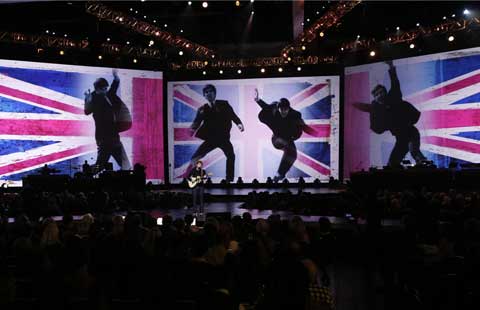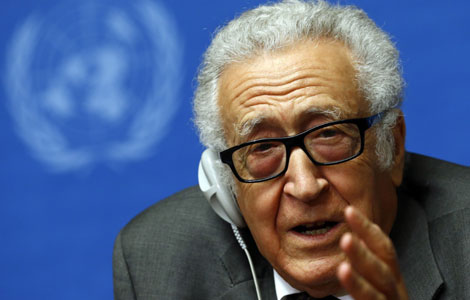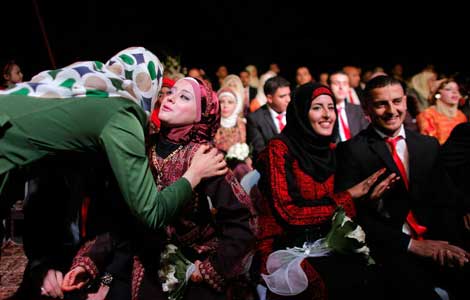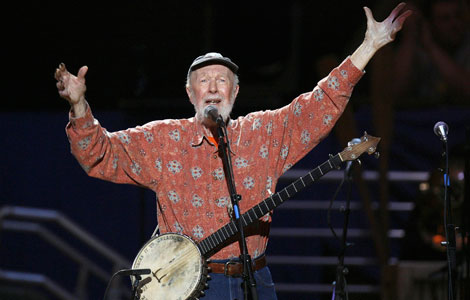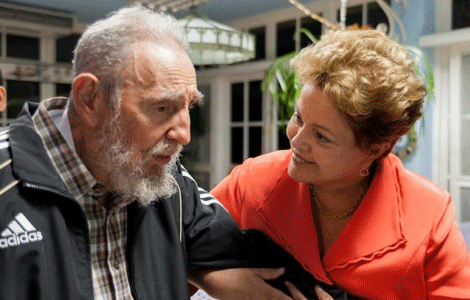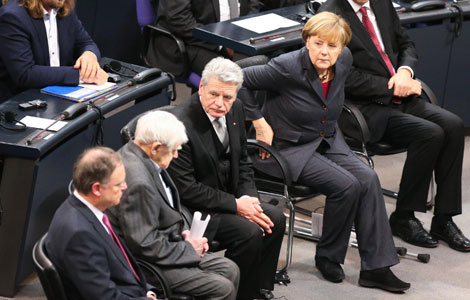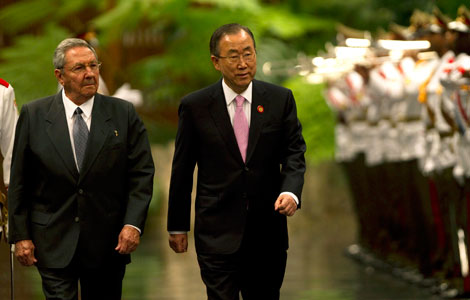

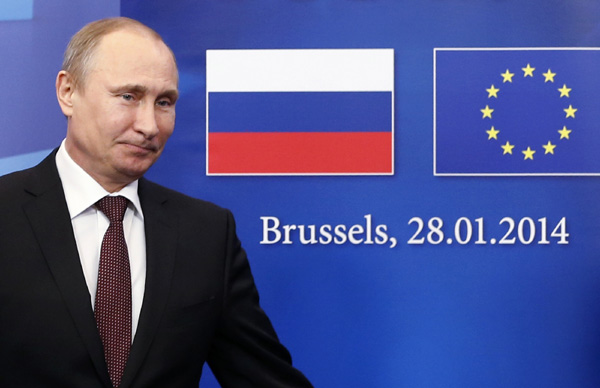 |
|
Russian President Vladimir Putin poses upon his arrival at the EU council headquarters for a European Union-Russia summit in Brussels January 28, 2014. [Photo/Agencies] |
"NEED FOR STRAIGHT TALKING"
"There is a need for a certain amount of straight talking, to clear the air perhaps, to clarify where we think this relationship is going," a senior EU official told reporters ahead of the summit, speaking on condition of anonymity.
Putin's foreign policy adviser Yuri Ushakov told reporters in Moscow it was "high time for a frank and detailed conversation, including about our joint view of the prospects for Russia-EU relations".
"We are convinced that the potential for interaction is not being fully utilised," he said.
In many respects, the showdown is about reordering power and influence after the collapse of the Soviet Union. The EU's enlargement process of the past decade has drawn in several former Soviet states and satellites. Moscow has pushed back, and is now trying to set up its own Eurasian customs union to rival the EU, preferably with Ukraine as a member.
While the EU never offered Kiev membership, it was keen for Ukraine and other states in the region to sign "association agreements", offering enhanced trade and investment in return for adopting EU standards of law, justice and civil liberties.
The strategy was left in tatters when Kiev spurned the EU after Moscow tightened checks on imports from Ukraine and threatened to cut off its gas supplies. Armenia had already opted to join the Moscow-led customs union.
